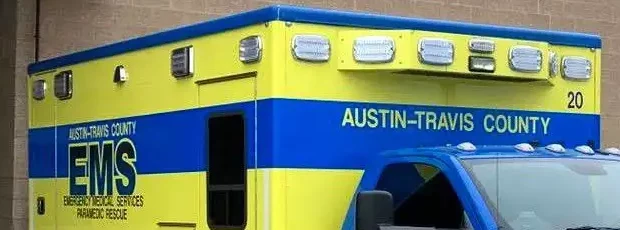County and city collaborate on robust mental health program ahead of diversion facility launch
Tuesday, May 16, 2023 by
Kali Bramble With the wheels officially in motion for Travis County’s Mental Health Diversion Center, City Hall is doing its own work to scale up the mental health services that will be key to its success.
In honor of Mental Health Awareness Month, City Council’s Public Health Committee spent last week’s meeting hearing from Emergency Medical Services and the county’s Health and Human Services Department on existing crisis outreach and diversion programs. The committee also unanimously endorsed the Mental Health First Aid Initiative slated for a vote this Thursday, which directs the city to expand its cadre of certified mental health emergency specialists in Austin by 1,000 over the next year.
“People with mental health and substance use disorders too often land in the criminal legal system because of disruptive or erratic behaviors that lead them to get arrested,” said Travis County Judge Andy Brown, who noted misdemeanors like public trespassing as a common example. “As this body is all too aware, the state of Texas woefully underinvests in mental health care, and as a result our county jail is the largest mental health facility in the county.”
Since the county’s approval of the new facility, staffers have been working on the program’s design, looking to success stories in cities like Nashville, Miami and Tucson for inspiration. While Brown says the funding and bidding process to get a center up and running will likely take two to three years, staff members are acting now to form partnerships at all levels, hoping to build robust pre- and post-arrest programs with a focus on rehabilitation and housing.
In step with that vision, the city will lean into existing mental health diversion programs like Community Health’s Paramedic Mental Health Response Unit, which works in tandem with the 911 call center and EMS to provide specialized on-scene care for those experiencing a mental health crisis. Since 2021, 911 callers have had the option to request help specifically for a mental health emergency, utilizing partnerships with Integral Care specialists that have diverted thousands of calls from unnecessary police responses and ER visits.
Since the program’s inception, Division Chief of Integrated Services Stephen White says an average of 90 to 95 percent of mental health calls have been resolved without law enforcement, and over 75 percent without dispatching an ambulance. The team has also made headlines piloting on-site administration of olanzapine, a medication commonly used in emergency rooms that can help quickly stabilize those suffering a psychotic episode.
“What other EMS systems are doing is using olanzapine for treatment during transport to the ER, but we believe we’re the only ones (in the nation) treating them, staying with them and ensuring they’re safe, and leaving them in the community if that’s appropriate,” said paramedic field training officer Kenny Pailes. “We’ve had a lot of success, and a really important facet of the program is connecting them to follow-up care.”
If Thursday’s votes suffice, Council will also look forward to pushing forth the Mental Health First Aid Initiative, a citywide campaign to expand the number of certified mental health specialists in more community-facing roles. Around 700 city employees have already undergone training, and another 120 are in the pipeline. Staffers hope they can encourage training, which entails an eight-hour training course, via vouchers for exams and supervisor requirements, targeted outreach, and expanding language access. Executive Director of Community Advancement Network Raul Alvarez, who is spearheading the team, says research has shown that such training outside of clinical settings can be particularly useful to those struggling with mental health and substance abuse disorders.
Those interested in becoming certified can learn more at Integral Care’s website, or sign up for an upcoming free training session on May 23.
The Austin Monitor’s work is made possible by donations from the community. Though our reporting covers donors from time to time, we are careful to keep business and editorial efforts separate while maintaining transparency. A complete list of donors is available here, and our code of ethics is explained here.
You're a community leader
And we’re honored you look to us for serious, in-depth news. You know a strong community needs local and dedicated watchdog reporting. We’re here for you and that won’t change. Now will you take the powerful next step and support our nonprofit news organization?









